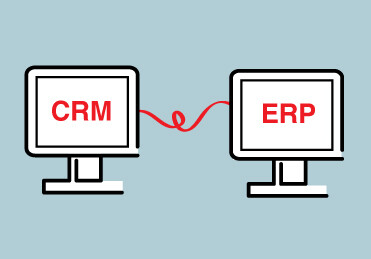 With an increase in technological sophistication on the ERP and CRM systems, there is now a growing need to bridge the gap between the services offered by these different software systems.
With an increase in technological sophistication on the ERP and CRM systems, there is now a growing need to bridge the gap between the services offered by these different software systems.
 With an increase in technological sophistication on the ERP and CRM systems, there is now a growing need to bridge the gap between the services offered by these different software systems. According to one estimate, the tech industry is losing as much as $30 billion every year due to an asynchronous business management system that has not brought the data from ERP and CRM together.
With an increase in technological sophistication on the ERP and CRM systems, there is now a growing need to bridge the gap between the services offered by these different software systems. According to one estimate, the tech industry is losing as much as $30 billion every year due to an asynchronous business management system that has not brought the data from ERP and CRM together.
Writing for a Forrester Research report, Ray Wang, an analyst with the firm said, “ERP systems provide much-needed internal information that can be shared with new stakeholders. CRM systems provide the entry point for stakeholders to engage with an organization. You can’t really have one without the other and be successful in the marketplace”. While businesses have realized this and have continued to invest in both the systems, the problem here is that this is being pursued as an IT challenge and not a business one.
Today, ERP and CRM perform two vastly different functions in an organization. While ERP helps in better coordination of material and human resources within the organization, the CRM helps in handling customer accounts and their resource needs with the organization. Consider a pretty basic scenario where one of your customer orders 1000 widgets. Typically, the business takes a purchase order for these 1000 widgets from the customer and transfers this to the production department who then take stock of the current inventory. Depending on this information, they set up additonal manufacturing requirements to satisfy customer demand. But because of the way the ERP and CRM systems are set up, the transition of requirements from a purchase order to actual production requirement is sometimes manual. In some cases, it takes several days for this transition.
By integrating the ERP and CRM systems together, it is possible to seamlessly map the customer requirements into the monthly production plan and thus save the business the time and money that is spent in bridging the gap. However, the challenge here is in mapping hundreds of thousands of client records to a production planning system. It is here that big data comes into the picture. For example, a typical enterprise user of CRM software might have customer records as big as 200 million. By mining the individual purchase history of each of these customers, it is possible to draw a quarterly plan for renewal ordrs and fresh purchases. By feeding this information into the ERP system, it is possible for the user to properly chart the capacity requirements and thus be able to build a resources pn more efficiently.
Given the cost benefit to the user as well as the massive improvement in efficiency that such an integration would bring to the company, an ERP-CRM integration is now a growing trend, at least among large enterprises. For instance, Oracle offers a JD Edwards EnterpriseOne suite that offers extensive integration between the ERP and CRM products. Consultants who offer JD Edwards training to enterprises have now expanded their services from pure-play ERP to include the integrated CRM software as well.
The integration of ERP with CRM is a huge challenge and big data plays a huge role in effecting this system. However, for a more efficient business system, it is critical to stop looking at ERP and CRM as IT products that solve specific functions, and instead look at them as business processes that need to be streamlined. Doing so will help create an efficient end-to-end business that will not only save time and money but also ensure better productivity.







